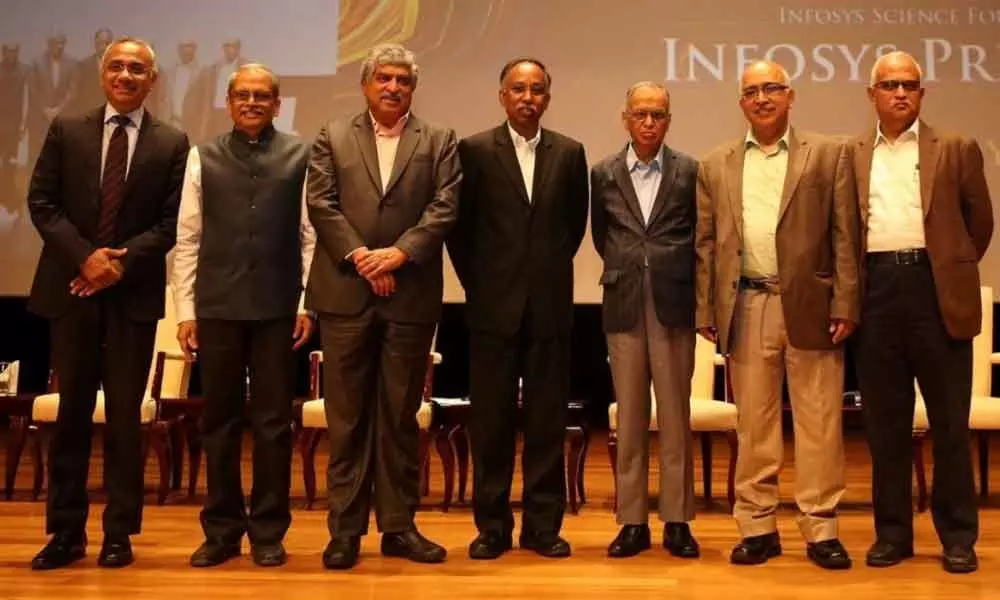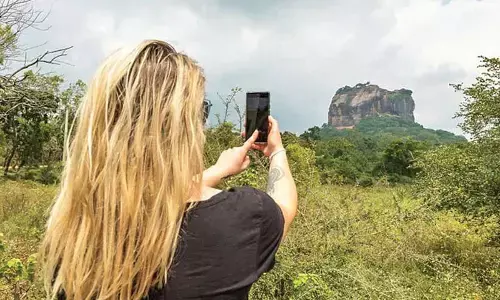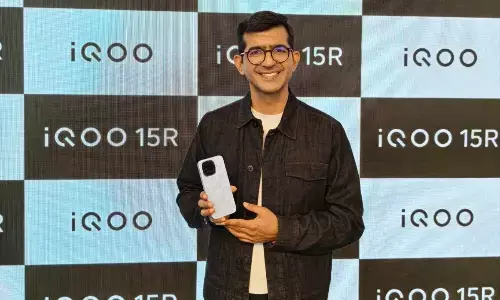Bangaluru: Six professors awarded USD 100K Infosys science prize

Six eminent professors, including two women scientists, were on Tuesday awarded the Infosys Prize 2019 worth 100,000 USD for their excellent work across different categories of science and research.
Bangaluru: Six eminent professors, including two women scientists, were on Tuesday awarded the Infosys Prize 2019 worth 100,000 USD for their excellent work across different categories of science and research. The annual award includes a pure gold medal, a citation, and a prize purse worth USD 100,000 or its equivalent in the Indian rupees, the Infosys Science Foundation (ISF) said.
The winners of the Infosys Prize 2019 were announced across six categories - Engineering and Computer Sciences, Humanities, Life Sciences, Mathematical Sciences, Physical Sciences, and Social Sciences. A panel of accomplished jurors comprising renowned scholars and professors shortlisted the winners from nearly 200 nominations. The winners were felicitated here by Nobel Laureate Amartya Sen, Professor of Economics and Philosophy, Harvard University, US during a ceremony.
The event was attended by distinguished scientists and academicians from India and abroad, business leaders, young researchers and students. "There are deep Links between friendship and knowledge. Our intellectual horizons expand when we learn from each other," Sen said in his speech as a Chief Guest. "We can give to the world much more than what we get from it. For example, the mathematical revolution in India from the fifth century onwards, led particularly by Aryabhata, was influenced by Intellectual developments in Greece, Babylon and Rome, but Aryabhatian mathematics, in turn, took Gigantic leaps in India, and then spread abroad, with transformational impact on China, on the Arab world, and eventually on Europe," he said.
"The constructive role of friendship applies not only across the national borders, but also within. Divisions Between groups and sects not only damage our social lives, but they can also work as barriers to Intellectual progress within and across the nations. Friendship is, in fact, central to the development of knowledge," said Sen. "The winners of the Infosys Prize this year have continued the tradition of those awarded over the last decade," said S. D. Shibulal, Co-founder, Infosys Limited and President of the ISF. "Their work shapes the path of research and progress in their respective fields, often significantly impacting other disciplines too, enabling innovation at the boundaries," he said.
The infosys Prize 2019 for Engineering and Computer Science was awarded to Sunita Sarawagi from the Indian Institute of Technology (IIT), Bombay for her research in databases, data mining, machine learning, and natural language processing, and for important applications of these research techniques.
The jury said Sarawagi's work has practical applications in helping clean up unstructured data like addresses on the web, and in repositories which then helps in more efficient handling of queries. In the field of Humanities, the prize was given to Manu V. Devadevan, assistant professor at Indian Institute of Technology (IIT), Mandi for his original, and wide-ranging work on pre-modern South India. He critically reinterprets much of the conventional wisdom about the cultural, religious, and social history of the Deccan and South India, ISF said. Manjula Reddy, chief scientist, Centre for Cellular and Molecular Biology (CCMB), Hyderabad bagged the prize in the field of Life Sciences for her "groundbreaking" discoveries concerning the structure of cell walls in bacteria.
Reddy and her colleagues have revealed critical steps of cell wall growth that are fundamental for understanding bacterial biology. This work could potentially help in creating a new class of antibiotics to combat antibiotic resistant microbes, according to ISF. For Mathematical Sciences, the prize was awarded to Siddhartha Mishra, professor at ETH Zurich in Switzerland, for his outstanding contributions to Applied Mathematics, particularly for designing numerical tools for solving problems in the real world. Mishra told PTI that his work has been used in climate models, in astrophysics, aerodynamics, and plasma physics.
"I have produced codes for complicated realistic problems such as tsunamis generated by rock slides, and waves in the solar atmosphere," he said, adding the award will boost the interest in Applied Mathematics in India. For Physical Sciences, the prize this year was awarded to G Mugesh, professor at the Indian Institute of Science (IISc), Bengaluru for his seminal work in the chemical synthesis of small molecules and nanomaterials for biomedical applications. he said.








